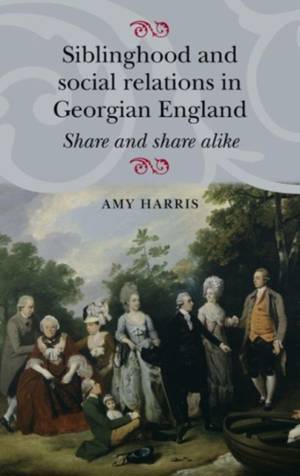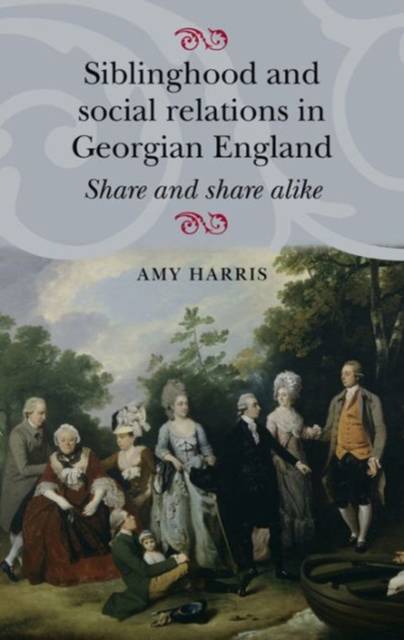
- Retrait gratuit dans votre magasin Club
- 7.000.000 titres dans notre catalogue
- Payer en toute sécurité
- Toujours un magasin près de chez vous
- Retrait gratuit dans votre magasin Club
- 7.000.0000 titres dans notre catalogue
- Payer en toute sécurité
- Toujours un magasin près de chez vous
Siblinghood and Social Relations in Georgian England
Share and Share Alike
Amy Harris
Livre relié | Anglais
209,45 €
+ 418 points
Format
Description
This book examines the impact sisters and brothers had on eighteenth-century English families and society. Using evidence from letters, diaries, probate disputes, court transcripts, prescriptive literature and portraiture, it argues that although parents' wills often recommended their children 'share and share alike', siblings had to constantly negotiate between prescribed equality and practiced inequalities.
Siblinghood and social relations in Georgian England, which will be the first monograph-length analysis of early modern siblings in England, is primed to be at the forefront of sibling studies. The book is intended for a broad audience of scholars - particularly those interested in families, women, children and eighteenth-century social and cultural history.Spécifications
Parties prenantes
- Auteur(s) :
- Editeur:
Contenu
- Nombre de pages :
- 224
- Langue:
- Anglais
Caractéristiques
- EAN:
- 9780719087370
- Date de parution :
- 18-08-12
- Format:
- Livre relié
- Format numérique:
- Genaaid
- Dimensions :
- 140 mm x 216 mm
- Poids :
- 385 g

Les avis
Nous publions uniquement les avis qui respectent les conditions requises. Consultez nos conditions pour les avis.






